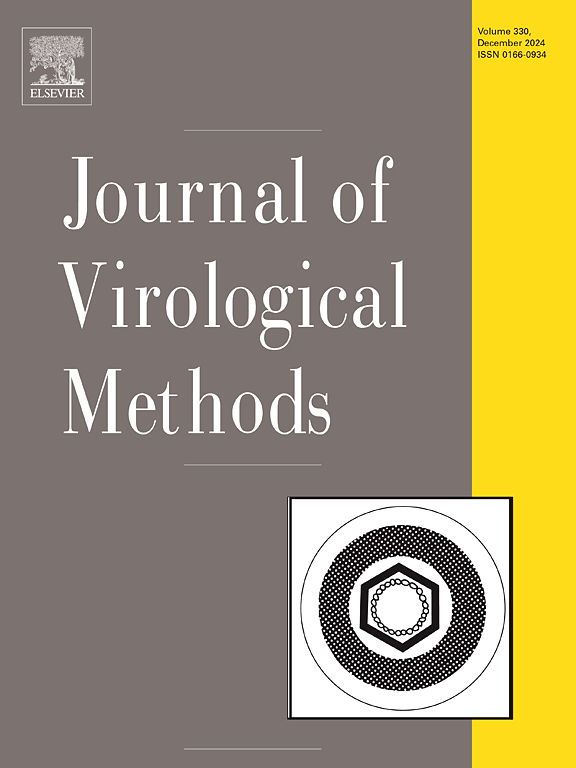2024年2月至3月希腊麻疹病例的实验室确认
IF 1.6
4区 医学
Q3 BIOCHEMICAL RESEARCH METHODS
引用次数: 0
摘要
根据世卫组织的建议,随着全球和欧洲麻疹病例的增加,希腊对该病毒的监测得到了进一步加强。使用血清学和分子方法相结合的方法对疑似病例进行了确认,同时实施了测序以确定该国流行的麻疹毒株。2月和3月共确诊18例,在3个行政区域记录了聚集性麻疹。测序结果显示,该国家同时存在B3和D8基因型,进一步的系统发育分析将D8基因型划分为两个亚群。希腊B3和D8基因型的共循环与同期其他国家的数据一致。建议同时使用血清学和分子方法来确认麻疹病例,因为这增加了评估社区内免疫差距以及采取及时减轻感染的具体措施的可能性。本文章由计算机程序翻译,如有差异,请以英文原文为准。
Laboratory confirmation of measles cases in GREECE, February-March 2024
Following the rise of measles cases on both a global and European level, the surveillance of the virus was strengthened even more in Greece, according to W.H.O. recommendations. Suspect cases were confirmed by using a combination of serological and molecular methods, whereas sequencing was implemented to determine the measles strains circulating in the country. In total, 18 cases were confirmed in February and March, with clusters of measles recorded in three administrative regions. Sequencing revealed that genotypes B3 and D8 were both present in the country and further phylogenetic analysis classified the D8 sequences into two sub-groups. The co-circulation of the B3 and D8 genotypes in Greece is consistent with data from other countries at the same time period. The use of both serological and molecular methods for the confirmation of measles cases is advisable, as it increases the possibility of assessing immunization gaps within the community as well as applying specific measures for the timely mitigation of the infection.
求助全文
通过发布文献求助,成功后即可免费获取论文全文。
去求助
来源期刊
CiteScore
5.80
自引率
0.00%
发文量
209
审稿时长
41 days
期刊介绍:
The Journal of Virological Methods focuses on original, high quality research papers that describe novel and comprehensively tested methods which enhance human, animal, plant, bacterial or environmental virology and prions research and discovery.
The methods may include, but not limited to, the study of:
Viral components and morphology-
Virus isolation, propagation and development of viral vectors-
Viral pathogenesis, oncogenesis, vaccines and antivirals-
Virus replication, host-pathogen interactions and responses-
Virus transmission, prevention, control and treatment-
Viral metagenomics and virome-
Virus ecology, adaption and evolution-
Applied virology such as nanotechnology-
Viral diagnosis with novelty and comprehensive evaluation.
We seek articles, systematic reviews, meta-analyses and laboratory protocols that include comprehensive technical details with statistical confirmations that provide validations against current best practice, international standards or quality assurance programs and which advance knowledge in virology leading to improved medical, veterinary or agricultural practices and management.

 求助内容:
求助内容: 应助结果提醒方式:
应助结果提醒方式:


